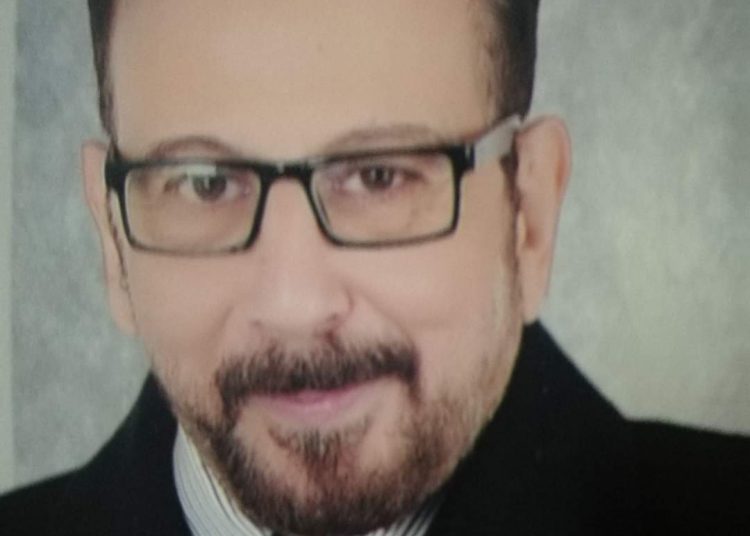Abdelmonem Fawzi
Poverty and disability move hand in hand in Africa. The problem is that some of us still believe that disability is a punishment from God, witchcraft, or the fault of mothers. Such false beliefs are deeply rooted in our continent.
The second problem is that when we hear the word ‘disability’, most of us think of someone in a wheelchair. The truth, however, is that only 4.4% of people with disability use wheelchairs.
There are many different types of disabilities that can affect a person’s mental, sensory, or mobility functions.
Some people are born with a disability, whilst others may acquire the disability as they age or through an accident.
The biggest barrier that people with disability face is the way society disables them.
Stereotyping, stigma, and discrimination are all enduring challenges for people with disability that have resulted in unemployment.
According to a World Health Organization source, about 40% of Africa’s population is disabled, including 10-15% school-age children.
This percentage means that there are about 300 million people with disabilities in Africa.
Disability is caused by many factors, including malnutrition and disease, environmental hazards, traffic and industrial accidents, and civil conflicts and war.
Sorry to say, the number of people with disabilities continues to increase.
The vast majority of Africans with disabilities are excluded from schools and opportunities for work, virtually guaranteeing that they live as the poorest of the poor.
School enrolment for the disabled is estimated at no more than 5-10% and as many as 70-80% of working age people with disabilities are unemployed.
The social stigma associated with disability results in marginalization and isolation, often leading to begging as the sole means of survival.
A meeting was held recently in Harare, Zimbabwe, to review the African Charter on the Rights of People with Disabilities.
Delegates reiterated the need to adopt the African Disability Protocol since in Africa there are harmful practices that need to be addressed, focusing on the role of the family, caregivers, and community with regards to the welfare of Persons with Disabilities (PWDs).
They agreed that disability should be understood in the African context.
The African Disability Protocol to the African Charter on Human and Peoples’ Rights was adopted by the African Union Commission on Human and People’s Rights at the thirtieth ordinary session of the Assembly which was held in Addis Ababa, January 2018.
The focus should be on Articles 2 and 18 that focus on the prevention of discrimination and elderly people.
Deborah Tigere, country director of the Christian Blind Mission, said Africa has a unique approach to PWDs in that the continent struggles with poverty.
“In Africa, we struggle with poverty, hence our approach to disability issues has to be unique because as developing countries, our problems and approaches in addressing our challenges have to be different from that of developed countries,” Tigere said.
A new report by the African Child Policy Forum invites attention to the challenges facing children with disabilities in Africa.
Africa has a large population of children with disabilities. The prevalence of moderate to severe disability in children aged younger than 14 years is 6·4%.
These children are largely invisible in society because of stigma and discrimination by most people, including their parents.
They face many physical barriers in daily life, discriminatory practices, and even direct abuse and violence.
For example, children with speech impairments are at five times greater risk of neglect and physical abuse than children without disabilities, and three times greater risk of sexual abuse, according to the report.
Mortality in children younger than 5 years with disabilities in some African countries is as high as 80%.
The report calls for five priority actions for African nations: put in place and implement appropriate legislation, policy, and programmes in line with the UN Convention on the Rights of Persons with Disabilities; develop and implement effective child protection measures; ensure the provision of basic services in a disability-friendly manner; improve physical accessibility of the built environment; and generate evidence and promote evidence-based advocacy and learning.
Children with disabilities have valuable contributions to make to society, but are kept from realising their full potential because of people’s attitudes to disability.
As Shuaib Chalklen, UN special rapporteur on Disability, states in the report, the hope is that its findings will “re-orient society’s thinking and its treatment of children with disabilities, moving from an attitude of rejection and neglect to one of respect and inclusion.
The truth is most children with disabilities in Africa have been disabled by the sad predicaments that continue to haunt the continent: war, poverty, and inadequate access to health care.
We still hope that all institutions and prominent and respected members of African societies will have a vital role to play in changing the way we think about disability.






Discussion about this post